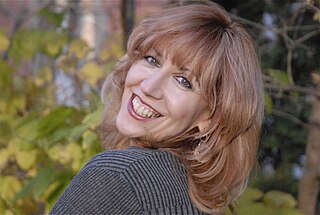Hiromi Goto is a Japanese-Canadian writer, editor, and instructor of creative writing.
Myrna Kostash is a Canadian writer and journalist. She has published several non-fiction books and written for many Canadian magazines including Chatelaine. Of Ukrainian descent, she was born in Edmonton, Alberta and educated at the University of Alberta, the University of Washington, and the University of Toronto. She resides in Edmonton, Alberta.
Shirlee Smith Matheson is a Canadian children's writer. Matheson was born in Winnipeg, Manitoba, on October 16, 1943.
Mary di Michele is an Italian-Canadian poet and author. She is a professor at Concordia University in Montreal, Quebec where she teaches in creative writing.

Aritha van Herk,, is a Canadian writer, critic, editor, public intellectual, and university professor. Her work often includes feminist themes, and depicts and analyzes the culture of western Canada.
Sheila Martin Watson was a Canadian novelist, critic and teacher. She "is best known for her modernist novel, The Double Hook." The Canadian Encyclopedia declares that: "Publication of Watson's novel The Double Hook (1959) marks the start of contemporary writing in Canada."

The Nouveau Roman is a type of 1950s French novel that diverged from classical literary genres. Émile Henriot coined the term in an article in the popular French newspaper Le Monde on May 22, 1957 to describe certain writers who experimented with style in each novel, creating an essentially new style each time. Most of the founding authors were published by Les Éditions de Minuit with the strong support of Jérôme Lindon.
George Ryga was a Canadian playwright, actor and novelist. His writings explored the experiences of Indigenous peoples in Canada, among other themes. His most famous work is The Ecstasy of Rita Joe.
Henry Kreisel, OC was a Canadian writer of novels and essays.
Peter Oliva, is a Canadian novelist who lives in Calgary, Alberta.
Wendy McGrath is a Canadian poet and novelist.
Thomas Wharton is a Canadian novelist.

Helen Barolini is an American writer, editor, and translator. As a second-generation Italian American, Barolini often writes on issues of Italian-American identity. Among her notable works are Umbertina (1979), a novel which tells the story of four generations of women in one Italian-American family; and an anthology, The Dream Book: An Anthology of Writings by Italian American Women (1985), which called attention to an emerging, and previously unnoticed, class of writers.
Guernica Editions is a Canadian independent publisher established in Montreal, Quebec, in 1978, by Antonio D'Alfonso. Guernica specializes in Canadian literature, poetry, fiction and nonfiction.
Frank G. Paci is an Italian-Canadian novelist and former teacher who lives in the Toronto area. He has published 13 books under the name F.G. Paci.

Gail Sidonie Sobat is a Canadian writer, educator, singer and performer. She is the founder and coordinator of YouthWrite, a writing camp for children, a non-profit and charitable society. Her poetry and fiction, for adults and young adults, are known for her controversial themes. For 2015, Sobat was one of two writers in residence with the Metro Edmonton Federation of Libraries. She is also the founder of the Spoken Word Youth Choir in Edmonton.

Joseph Pivato is a Canadian writer and academic who first established the critical recognition of Italian-Canadian literature and changed perceptions of Canadian writing. From 1977 to 2015 he was professor of Comparative Literature at Athabasca University, Canada. He is now Professor Emeritus.

Jacqueline Jill Robinson is a Canadian writer and editor. She is the author of a novel and four collections of short stories. Her fiction and creative nonfiction have appeared in a wide variety of magazines and literary journals including Geist, the Antigonish Review, Event, Prairie Fire and the Windsor Review. Her novel, More In Anger, published in 2012, tells the stories of three generations of mothers and daughters who bear the emotional scars of loveless marriages, corrosive anger and misogyny.
Janice Elva MacDonald is a Canadian writer of literary and mystery novels, textbooks, non-fiction, and stories for both adults and children. She is best known as the creator of a series of comic academic mystery novels featuring reluctant amateur sleuth Miranda "Randy" Craig, all of which are set in Edmonton, Alberta.
NeWest Press is a Canadian publishing company. Established in Edmonton, Alberta, in 1977, the company grew out of a literary magazine, NeWest Review, which had been launched in 1975. Early members of the collective that established the company included writer Rudy Wiebe and University of Alberta academics Douglas Barbour, George Melnyk, and Diane Bessai.





